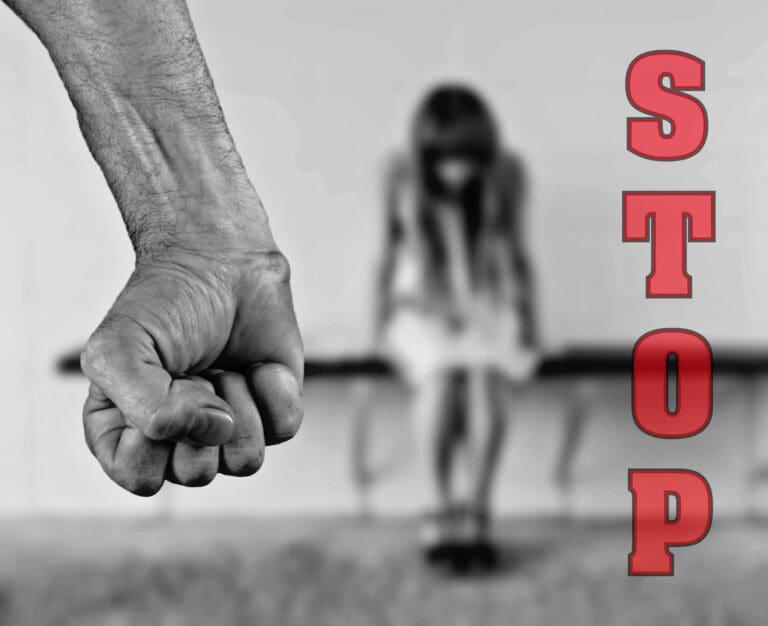
Elder abuse is a serious issue that affects millions of seniors worldwide. It involves any form of mistreatment or neglect that causes harm or distress to an older person. Understanding the protección jurídica available and knowing how to report elder abuse are crucial steps in safeguarding the well-being of our elderly population. This comprehensive guide explores the legal aspects of elder abuse, including protections and reporting mechanisms.
Understanding Elder Abuse
Elder abuse can take many forms, including physical, emotional, sexual, financial, and neglect. Each type of abuse has its own signs and symptoms, making it essential for caregivers, family members, and professionals to be vigilant and aware.
1. Physical Abuse: Physical abuse involves the use of force that results in bodily injury, pain, or impairment. Signs include bruises, cuts, broken bones, and other unexplained injuries.
2. Emotional Abuse: Emotional abuse includes verbal assaults, threats, acoso, and intimidation. Victims may exhibit signs of depression, anxiety, withdrawal, and fear.
3. Sexual Abuse: Sexual abuse involves any non-consensual sexual contact. Indicators include bruises around the breasts or genital area, unexplained sexually transmitted infections, and changes in behavior.
4. Financial Abuse: Financial abuse is the illegal or improper use of an elder’s funds, property, or assets. Warning signs include sudden changes in bank accounts, unauthorized withdrawals, and missing valuables.
5. Neglect: Neglect occurs when a caregiver fails to provide necessary care, resulting in harm to the elder. Signs include poor hygiene, untreated medical conditions, malnutrition, and dehydration.
Legal Protections for Elders
There are several legal protections in place to prevent elder abuse and ensure justice for victims:
1. Adult Protective Services (APS): APS agencies exist in every state to investigate reports of elder abuse and provide services to protect vulnerable adults. They work with law enforcement, healthcare providers, and social services to address cases of abuse.
2. Elder Justice Act: The Elder Justice Act provides federal resources to combat elder abuse, neglect, and exploitation. It supports programs that improve the detection and prevention of elder abuse and enhances the coordination of services for victims.
3. State Laws: Each state has its own laws addressing elder abuse. These laws define what constitutes abuse, establish mandatory reporting requirements, and outline penalties for perpetrators. Understanding the specific laws in your state is crucial for effectively addressing elder abuse.
4. Guardianship and Conservatorship: Legal guardianship and conservatorship can be established to protect elders who are unable to make decisions for themselves. Courts can appoint a guardian or conservator to manage the elder’s personal and financial affairs, ensuring their safety and well-being.
Reporting Elder Abuse
Reporting elder abuse is a critical step in protecting vulnerable seniors and ensuring they receive the help they need. Here are the steps to take when you suspect elder abuse:
1. Recognize the Signs: Be aware of the signs of elder abuse, as outlined above. Trust your instincts if you believe something is wrong.
2. Document Evidence: Collect as much information as possible, including dates, times, descriptions of incidents, and any physical evidence such as photographs. This documentación will be crucial for investigators.
3. Contact Authorities: Report your concerns to local Adult Protective Services (APS) or law enforcement. Provide them with all the information you have gathered. APS agencies have hotlines that you can call to report abuse.
4. Follow Up: Stay in contact with the authorities and follow up on the report to ensure that the case is being investigated. Be prepared to provide additional information if needed.
5. Seek Legal Advice: Consult with an attorney who specializes in elder law to understand your legal options and rights. Profesionales del Derecho can provide guidance on how to navigate the reporting process and ensure the elder’s protection.
Case Studies: Legal Protections in Action
Historia de éxito: Mary, an 85-year-old widow, was being financially exploited by her caregiver. Her family noticed unusual transactions in her bank account and reported it to APS. With the help of APS and legal action, the caregiver was prosecuted, and Mary’s assets were protected. This case highlights the importance of vigilance and timely reporting.
Ejemplo de reto: John, a 70-year-old man with dementia, was neglected by his son, who was his primary caregiver. Despite multiple reports to APS, the abuse continued due to lack of evidence and the son’s manipulation of the situation. This case underscores the challenges in documenting and proving neglect, emphasizing the need for thorough investigation and support.
Comparative Analysis of Elder Abuse Laws
Elder abuse laws vary significantly by jurisdiction, reflecting different legal frameworks and cultural attitudes towards aging and elder care:
1. Estados Unidos: In the U.S., elder abuse laws are comprehensive, with federal acts like the Elder Justice Act and state-specific laws. Mandatory reporting is common, and APS agencies play a crucial role in investigating and addressing abuse.
2. 2. Reino Unido: The UK has a strong legal framework for protecting elders, with laws such as the Care Act 2014, which mandates local authorities to protect adults at risk of abuse or neglect. The Safeguarding Adults Boards coordinate efforts to protect vulnerable adults.
3. Canadá: Canada’s approach to elder abuse involves a combination of federal and provincial laws. The Canadian Charter of Rights and Freedoms and the Criminal Code provide protections, while provinces have their own specific laws and APS services.
Understanding these differences is essential for addressing elder abuse effectively, especially in multicultural or international contexts.
Desglose detallado de las consecuencias jurídicas
Legal consequences for elder abuse are designed to protect victims and punish offenders:
1. Criminal Penalties: Perpetrators of elder abuse can face cargos penales, including asalto, robo, fraudey neglect. Penalties may include fines, imprisonment, and mandatory counseling or rehabilitation.
2. Civil Penalties: Victims of elder abuse can file civil lawsuits to seek compensation for damages, including gastos médicos, pain and suffering, and punitive damages. Asuntos civiles can provide financial relief and hold abusers accountable.
3. Professional Consequences: Caregivers and professionals found guilty of elder abuse may lose their licenses and certifications. This can prevent them from working in caregiving or healthcare fields in the future.
4. Protective Orders: Courts can issue protective orders to prevent abusers from contacting or coming near the victim. This ensures the victim’s safety and provides legal recourse if the abuser violates the order.
Step-by-Step Guide to Reporting Elder Abuse
1. Identify and Document: Recognize the signs of elder abuse and document your observations. Take detailed notes and gather any physical pruebas.
2. Report to Authorities: Contact local APS or law enforcement to report the abuse. Provide all the information you have documented and be prepared to answer questions.
3. Follow Up: Stay in touch with the authorities and follow up on the case. Provide any additional information they may need.
4. Seek Legal Advice: Consult with an elder law attorney to understand the legal options and protections available. An attorney can help navigate the legal process and ensure the elder’s rights are upheld.
5. Support the Victim: Provide emotional and practical support to the elder during the investigation. This may include arranging medical care, counseling, and safe housing if needed.
Technology and Tools for Reporting Elder Abuse
Advancements in technology offer several tools to assist in reporting and preventing elder abuse:
1. Online Reporting Systems: Many states have online systems for reporting elder abuse, making it easier to submit reports and track cases.
2. Mobile Apps: Apps like “Elder Abuse Prevention” provide resources, reporting tools, and information on recognizing and preventing abuse.
3. Social Media Awareness: Social media platforms can be used to raise awareness about elder abuse and share information on how to report it. Advocacy groups often use these platforms to educate the public and mobilize support.
Cambios y tendencias legislativas
Elder abuse laws are evolving to address new challenges and improve protections:
1. Enhanced Penalties: Some jurisdictions are increasing penalties for elder abuse to deter potential offenders and emphasize the seriousness of the crime.
2. Improved Reporting Systems: Legislators are working to streamline and enhance reporting systems, making it easier for victims and witnesses to report abuse and for authorities to respond swiftly.
3. Focus on Financial Abuse: With the increasing incidence of financial exploitation, new laws are being proposed to provide better protections and stronger penalties for financial abuse of elders.
Ethical Considerations in Elder Abuse
Ethical considerations are critical in addressing elder abuse:
1. Respect for Autonomy: It is essential to respect the autonomy and dignity of elders, ensuring that their wishes and preferences are considered in all decisions.
2. Protection from Harm: Caregivers and professionals have an ethical duty to protect elders from harm and ensure their safety and well-being.
3. Confidentiality and Privacy: Respecting the confidentiality and privacy of elders is crucial, especially when reporting abuse and conducting investigations.
Finding the Right Attorney for Elder Abuse Cases
When dealing with elder abuse cases, finding an attorney with expertise in derecho de la tercera edad es crucial. He aquí algunos pasos para ayudarle a encontrar la representación legal adecuada:
Investigación: Look for attorneys who specialize in elder law and have a proven track record in handling elder abuse cases. Use online directories, read reviews, and consult with elder advocacy organizations for recommendations.
Consultas: Schedule consultations with potential attorneys to discuss your case. Ask about their experience with elder abuse cases, their approach to legal strategy, and their familiarity with relevant laws and regulations.
Recomendaciones: Seek recommendations from trusted sources, such as friends, family, or professional associations. Personal referrals can provide valuable insights into an attorney’s reliability and effectiveness.
Un recurso fiable para encontrar abogados cualificados es Abogados.Media, which offers a comprehensive directory of legal professionals. By using this platform, you can search for attorneys based on their expertise, location, and client reviews, ensuring you find the best possible representation for your elder abuse case.
FAQs about Elder Abuse
Q: What is elder abuse? A: Elder abuse involves any form of mistreatment or neglect that causes harm or distress to an older person. It can be physical, emotional, sexual, financial, or neglectful.
Q: How can I report elder abuse? A: You can report elder abuse by contacting your local Adult Protective Services (APS) or law enforcement. Provide detailed information and documentation to support your report.
Q: What legal protections are available for elders? A: Legal protections for elders include Adult Protective Services, the Elder Justice Act, state-specific laws, and legal mechanisms such as guardianship and conservatorship to ensure their safety and well-being.
By understanding the key legal protections and reporting mechanisms for elder abuse, individuals can take proactive steps to safeguard the elderly and ensure justice for victims, promoting a safer and more respectful environment for our seniors.








